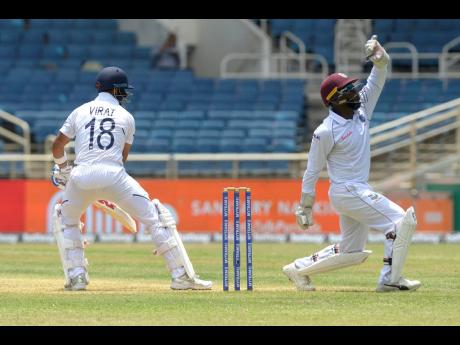‘Too many challenges’ - Ganga concerned about difficulties in resumption of major sporting events
FORMER WINDIES cricketer Daren Ganga says that professional sports will face a number of challenges before it can return safely.
Ganga was speaking on Friday at The University of the West Indies Faculty of Sport’s online forum ‘Sport After COVID-19’. The symposium addressed various issues affecting sport because of the coronavirus pandemic.
Globally, sporting leagues and events have been postponed, suspended, or cancelled because of the virus. Countries are determining when, if, and how sports can return in a way that will ensure the protection of athletes and other stakeholders.
Ganga, now a broadcaster, says that the main goal will be to put measures in place to alleviate the panic and uneasiness that the pandemic has caused.
“We are constantly hearing countries talk about that road of recovery for this COVID-19 pandemic,” he said. “The way I see it is obviously a country must dispel that fear of that health concern as it relates to COVID-19. That to me is a fundamental signal that they can start looking at other things.
“And when you dispel that concern of contracting the virus, then you are going to look at opening up and dispelling the social restrictions which countries would have had. So there is a process that has to be followed, in my estimation, before we could start thinking about sports being played.”
FRAMEWORK TO RESUME LEAGUES
There are countries that have successful instituted frameworks to allow certain leagues to resume.
In Germany, their domestic football leagues (Bundesliga and Bundesliga 2) were given approval by its government to return on May 16, although with strict health protocols in place, including no fans in attendance, and testing for all teams before fixtures. The K-1 football league in South Korea resumed on Friday with similar restrictions in place.
While other countries are attempting to find solutions that would allow professional sports to return, Ganga warns that the issue is subjective, as the danger level of other countries vary and could need more time to decrease risk.
“The other complicated factor to all of this is that not every country is on the plain in terms of it’s recovery,” he said. “So if you are thinking about international sport, then travel becomes something of a restriction for countries who are still going through that process of making sure it is not a health concern. So that is where I see elite sport being restricted primary.”
With leagues that have returned requiring mandatory testing of athletes and team personnel, Jamaica Olympic Association President Christopher Samuda, another panellist at the forum, said that governments would encourage sporting associations to make this a condition to return rather than implement a policy themselves.
“I think what will happen is that they will robustly educate the associations to carry out that responsibility and it’s a responsibility that any sport organisation worth its while should,” Samuda said.

